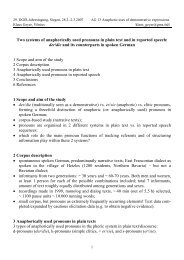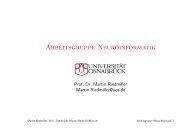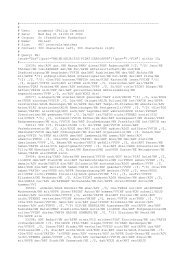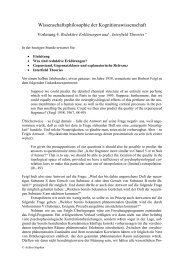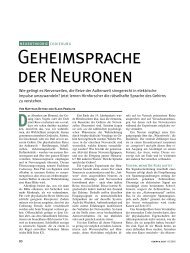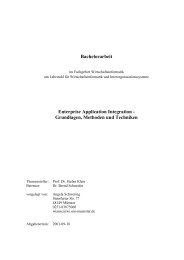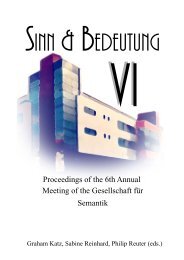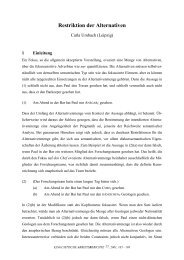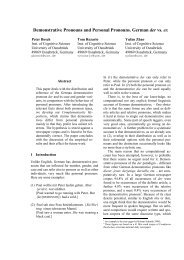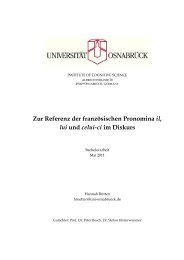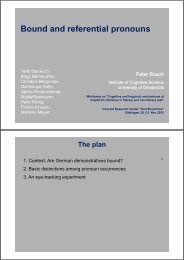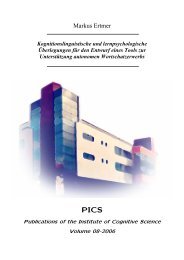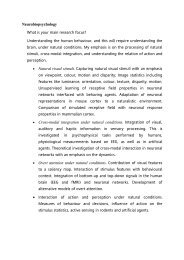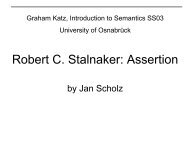Weak definites and German preposition - Cognitive Science
Weak definites and German preposition - Cognitive Science
Weak definites and German preposition - Cognitive Science
Create successful ePaper yourself
Turn your PDF publications into a flip-book with our unique Google optimized e-Paper software.
Remaining issues<br />
A disadvantage of the reliance on constructions is, however, that<br />
we would be stuck with in principle idiosyncratic lexical<br />
restrictions <strong>and</strong> non-compositional “construction meaning”.<br />
Another question that we have not addressed yet is why WD<br />
readings in both English <strong>and</strong> <strong>German</strong> are expressed by definite<br />
forms: Why there is a semantic difference between WDs <strong>and</strong><br />
in<strong>definites</strong>.<br />
In the following we will attempt to address both of these issues.<br />
Abstract situations <strong>and</strong> types<br />
Let's first go back to<br />
closing the window, going to the supermarket, reading<br />
the newspaper, going to the cinema, ...<br />
On their WD reading these expressions denote properties or<br />
types of situations.<br />
These (abstract) situations contain exactly one window,<br />
newspaper, etc. - i.o.w., the situation abstracts from all<br />
differences between particular windows, newspapers, etc.<br />
The identity that is at the roots of the weak definiteness of<br />
“the window”, “the newspaper” etc. is the identity of<br />
abstract objects, or types, which is fixed only for the<br />
specific situation type, <strong>and</strong> only in relation to other<br />
elements in the same (abstract) situation.<br />
3<br />
3<br />
3<br />
4<br />
33<br />
34



